Mac Source Ports
Run old games on new Macs
Mac Source Ports features native app builds of source ports of your favorite games for both Apple Silicon and Intel Macs, signed and notarized whenever possible.
Developer: New World Computing
Release Date: October 1, 1996
Heroes of Might and Magic II is a 4X turn-based strategy game. Ranked once by PC Gamer as the sixth-best game of all time it features resource building, new factions, skills, and a single-player campaign.
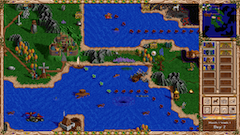
Source Port:
For more information on getting the game's data onto your Mac check our FAQ
Developer: Epic MegaGames
Release Date: August 1, 1994
In the great mascot character wars of the 90's, Nintendo had Mario, Sega had Sonic the Hedehog, and the PC had Jazz Jackrabbit. Two of those characters are big enough have their own movie franchises now. The other one is Jazz Jackrabbit.
Nevertheless, back when work on the Unreal engine hadn't even started yet and before Epic became a billion dollar Fortnite force, they were Epic MegaGames and they released Jazz Jackrabbit the little game that could... show off your Super VGA graphics card.
Yeah this game didn't change the world, although it did get is own sequel and there was even the beginnings of a Super Mario 64 leap into 3D, but it's still a pretty charming game that's fun to play, if nowhere near as polished as its cartridge comrades.
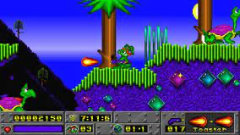
Source Port:
For more information on getting the game's data onto your Mac check our FAQ
Developer: id Software
Release Date: June 22, 1996
Source Code Release Date: December 21, 1999
Quake is a first-person shooter, the first in the Quake series, which added polygonal enemies, advanced geometry, and a soundtrack by Nine Inch Nails. A fascinating example of grappling with technology changes in parallel to gameplay, it spawned entire industries of modders and mutiplayer gaming.
The vkQuake port was derived from the QuakeSpasm Spiked port and uses Vulkan on macOS by way of MoltenVK. In addition, vkQuake recently added support for the remastered version of Quake from Night Dive Studios.
And because I've had a few requests for it, we are now hosting a build of DarkPlaces as an alternative port.
If you want to experience what it was like to play Quake at laumch before the advent of GLQuake or hardware acceleration, we have added Chocolate Quake as an additional option.
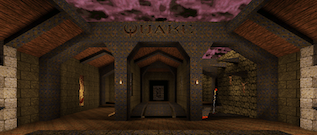
Source Ports:
To run different mods, you will need to drill into the vkQuake.app/Contents/MacOS directory in Terminal and run the vkquake executable with command line options. In the future we hope to add a GUI for this.
For more information on getting the game's data onto your Mac check our FAQ
Developer: Stainless Games
Release Date: June 13, 1997
An example of controversy for controversy's sake, Carmageddon basically took what people wanted to do in other racing games - crash into other cars and run over pedestrians - and turned it into the primary gameplay loop. They took the macabre joke about getting points for hitting people in your car and made it a gameplay mechanic. The game was successful both from a critical and commercial perspective, as well as its goal as a controversy magnet.
The dethrace project is a source port where in lieu of source code they're reverse engineering it, and according to their Twitter account they're approximately 70% of the way there. The game is very playable but may crash in some places, so I'm introducing a new tag: Early Access. This probably could use a better name but I'm using it to convey the notion that the project doesn't consider itself completely finished (though there are reports of people making it through the entire game), but it's still pretty awesome so I figured if nothing else it's worth putting up a quick build.
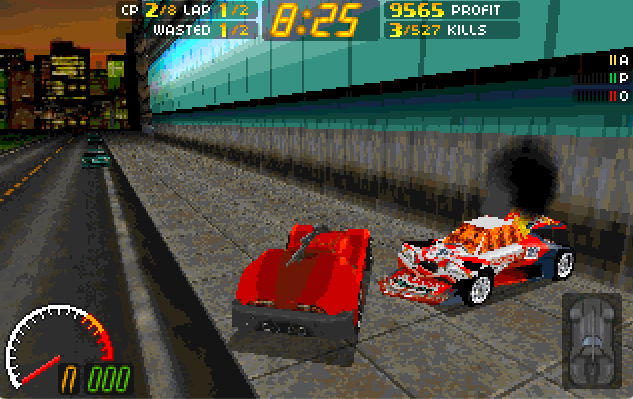
Source Port:
For more information on getting the game's data onto your Mac check our FAQ
Developer: New World Computing
Release Date: June 1, 2001
Did you like Heroes of Might and Magic III and want more of it? Like a lot more? Good news - between 1999 and 2001 New World Computing put out eight expansion packs under the heading of Heroes Chronicles. Some were retail, others were free, but retailers like GOG have collected them all into one package.
Note that the way VCMI works you will also need the base Heroes of Might and Magic III game installed.
Although my aim is to host signed and notarized game bundles on Mac Source Ports, the VCMI project recently added Apple Silicon support and is sufficiently complex that at this time I'm going to link to their work. We may host a notarized version in the future.
Because the app bundle is not notarized, on first run you may run into issues. The shortest answer is to right-click on the app bundle (VCMI.app) and select Open. The long answer is here.
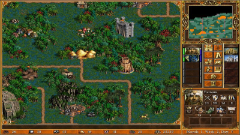
Source Port:
Developer: New World Computing
Release Date: March 3, 1999
Heroes of Might and Magic III is another 4X turn-based strategy game and is one of the best games in the series.
Although my aim is to host signed and notarized game bundles on Mac Source Ports, the VCMI project recently added Apple Silicon support and is sufficiently complex that at this time I'm going to link to their work. We may host a notarized version in the future.
Because the app bundle is not notarized, on first run you may run into issues. The shortest answer is to right-click on the app bundle (VCMI.app) and select Open. The long answer is here.
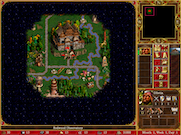
Source Port:
For more information on getting the game's data onto your Mac check our FAQ
Developer: Chris Sawyer
Release Date: 1995
OK, so this one is kinda weird. Here's the deal:
Transport Tycoon Deluxe was released in 1995, a simulation game by Chris Sawyer in his graphic/UI style about managing transportation in a city. Sort of the progenitor to things like Cities Skylines. Or maybe just the transportation parts of SimCity.
The source port OpenTTD, as its name might suggest, is a reimplementation of Transport Tycoon Deluxe. Like some other ports on this site, it is not based on existing code, it is a reimplimentation of the engine designed to consume the Transport Tycoon Deluxe data files.
Straightforward enough, but what makes it unusual is that Transport Tycoon Deluxe is not commercially available anymore, not even on the usual suspects like Steam or GOG. So unless you have the files from somewhere you can't play it.
To address that, OpenTTD allows you to download third party clean room data implementations of the game data files. These are not the exact same as the commercial game but they get the job done. When you run the game for the first time, it will prompt you to download the files for you. There's also tons others to choose from.
This is a complete enough solution that OpenTTD is even on Steam and GOG itself as a full (free) game. You can get it from there or you can get it from the links below, which are straight from the developer's site. I'm listing it here because I want to show all of the signed and notarized Universal 2 options I come across.
So download it from wherever and fire it up and strap in for one of the most ridiculously hardcore games on this site so far.
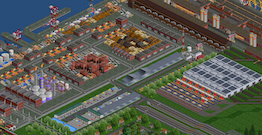
Source Port:
Developer: id Software
Release Date: May 5, 1992
Source Code Release Date: August 1995
Wolfenstein 3-D is the granddaddy to all the modern first person shooters that came after it. Released as shareware in 1992 it launched the independent career of id Software that would result in DOOM and Quake. Though simplistic by today's standards, it still holds up as a fun maze game with the occasional Nazi to shoot.

Source Ports:
For more information on getting the game's data onto your Mac check our FAQ
Developer: id Software
Release Date: September 18, 1992
Source Code Release Date: August 1995
Spear of Destiny is the retail sequel to the shareware Wolfenstein 3-D. Timeline-wise, it is a prequel that features B.J. Blazkowicz on a mission to recapture the titular Spear of Destiny from the Nazis. If you want more Wolfenstein 3-D, this has you covered.
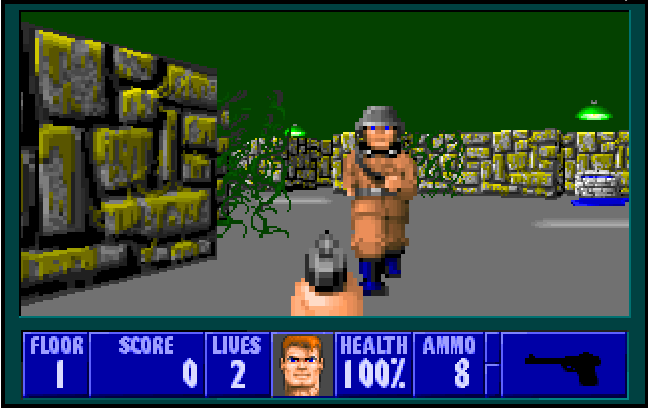
Source Ports:
For more information on getting the game's data onto your Mac check our FAQ
Developer: Wisdom Tree
Release Date: 1994
An example of a release whose backstory is more interesting than the game itself, Super 3D Noah's Ark is the byproduct of a truly strange course of events.
The original NES was the first home console to introduce the concept of locking out unofficial or unlicensed developers, and the market responded with various attempts to bypass the mechanism, being met with various forms of litigation in the process. One of these companies was called Color Dreams and they released a small handful of truly terrible games.
Faced with the concept of going under, one of the founders joked about getting into making religious games and the idea kind of took off from there - they'd be sold in Christian bookstores, they'd more or less have the market to themselves, and Nintendo would be less likely to sue a religious organization due to the bad press involved.
After years on the NES, they released what is believed to be the only unlicensed SNES game ever to hit the market, Super 3D Noah's Ark. It circumvented the lockout mechanism by being a "pass-through" cartridge, so you had to plug a licensed game into it to get it to work (think: Sonic & Knuckles).
As if that wasn't odd enough, they licensed the SNES version of the Wolfenstein 3-D engine from id Software. It was long rumored that id Software gave them the license for free as a reslt of being angry at the changes they had to make to Wolfenstein 3-D to appease Nintendo (turning German shepherds into giant rats, no blood, etc.) but it was later revealed that no, they legitimately licensed the engine.
The game itself doesn't make a lot of sense, like how on an ark designed to have two of every animal there's only a few different animals repeated over and over. Or why you need to put them to sleep with a slingshot. Or why the ark is a maze. Or why you have to take the occasional Bible quiz. But that was never the point. The point was to be a sprite-swapped Wolfenstein 3-D port for the religious video game market and it worked.
Interestingly enough, not only is it one of only three games that the ECWolf source port plays, the game is currently available on GOG and Steam because the autor of ECWolf worked out a deal with Wisdom Tree (which still technically exists, I guess) to put it on there with ECWolf packaged to play it. It's only on Windows though, so you can use the port we have built here to play it on your Mac.

Source Ports:
For more information on getting the game's data onto your Mac check our FAQ
Developer: Tom Kidd / Mac Source Ports
Release Date: February 23, 2022
Extractor is an app from Mac Source Ports that extracts files from GOG Windows-based installers. Think of it as a GUI version of innoextract.
Right now, Extractor does exactly two things: lists the files in an installer, and extracts the files from an installer. We hope to expand it in the future but for now it's a simple application.
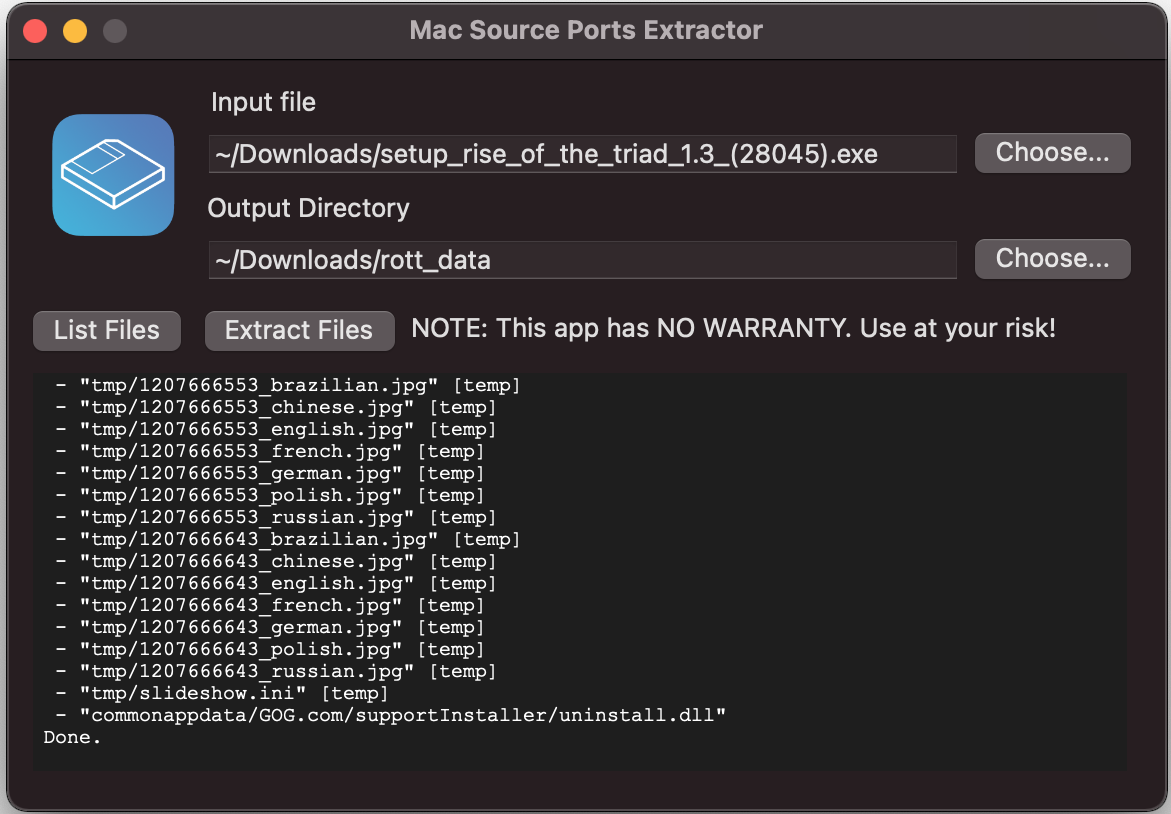
Build Date: December 6, 2022
Developer: Hard Light Productions
Release Date: February 11, 2024
Knossos.NET is a utility that aids in downloading and configuring the FreeSpace 2 Open Source Project, aids in configuring the content from a GOG installer or other location, and can even help with mod management and multiplayer support. Check it out if you want to play FreeSpace 2 with as little hassle as possible.
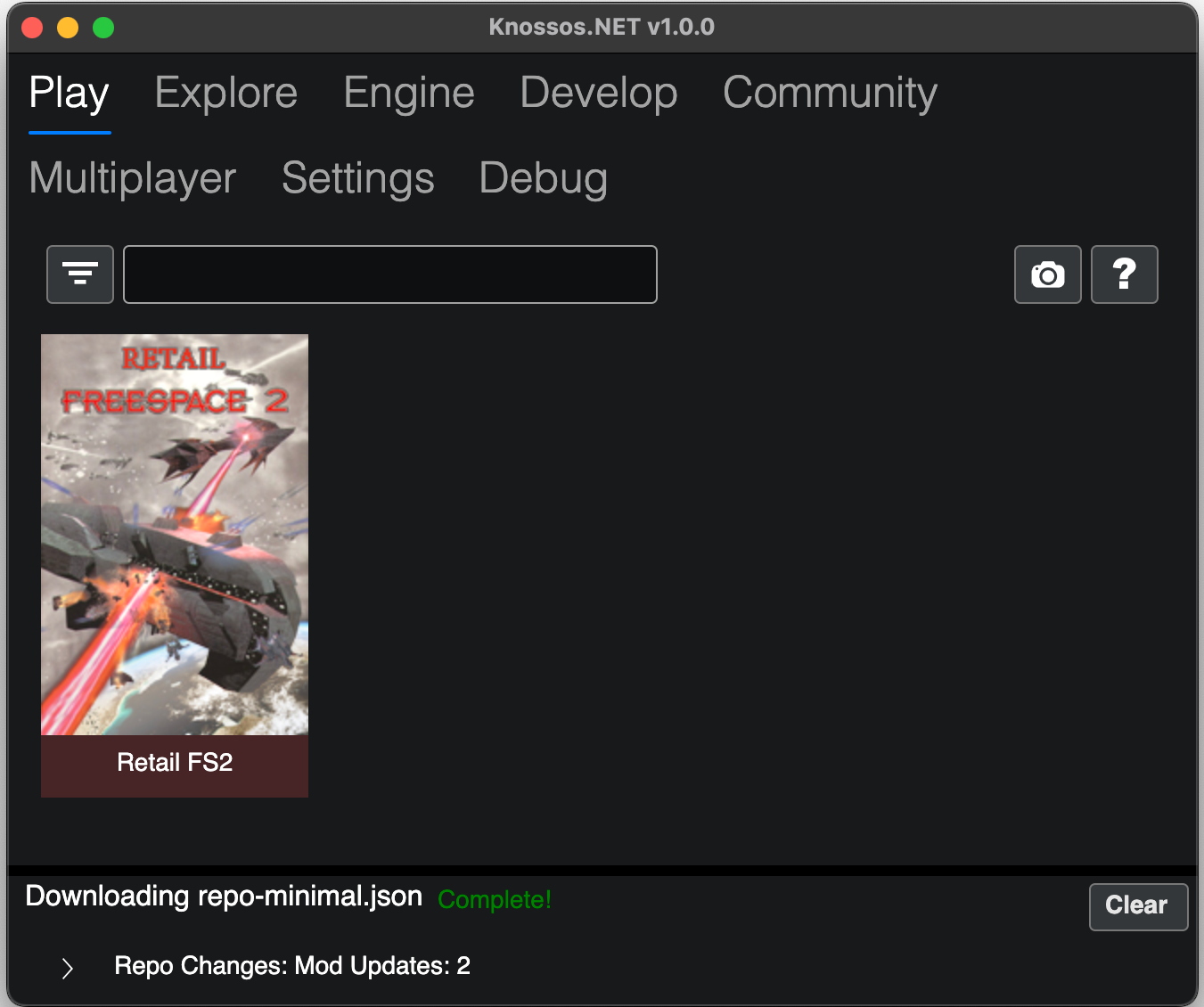
Build Date: February 11, 2024
Copyright © 2026 MacSourcePorts.com | Contact Us
Contact Us